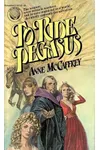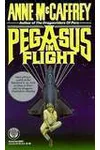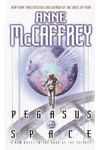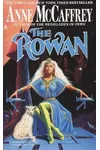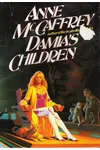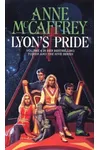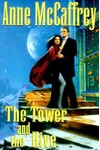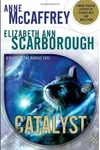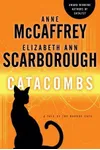Step into the captivating world of Anne McCaffrey’s Talent series, where psychic powers unlock humanity’s potential and spark thrilling adventures! This beloved science fiction and fantasy blend follows the Talented—individuals with extraordinary abilities like telepathy and telekinesis—as they navigate a society that both fears and needs their gifts. With rich world-building and unforgettable characters, the Talent series invites readers to explore a future where the mind’s potential shapes the stars.
McCaffrey, a trailblazing author known for her Dragonriders of Pern, crafts a universe where psychic abilities are both a blessing and a burden. From bustling cities to sprawling space stations, the Talent series offers a fresh take on speculative fiction that’s as thought-provoking as it is exciting. Ready to dive into this psychic-powered saga? Let’s explore its origins, stories, and lasting charm!
How Talent Began
Anne McCaffrey launched the Talent series in 1973 with To Ride Pegasus, a collection of short stories born from her fascination with human potential. Inspired by the idea of untapped psychic abilities, McCaffrey imagined a world where telepaths and telekinetics could revolutionize society—if they could overcome prejudice. Her background in science fiction, coupled with her knack for crafting relatable characters, gave the series its unique blend of grounded realism and fantastical wonder. Over nearly three decades, McCaffrey expanded this universe, connecting it to her broader Talents Universe, including the Tower and Hive series.
The Heart of Talent
The Talent series comprises three core novels, each a standalone yet interconnected tale of psychic prowess. To Ride Pegasus (1973) introduces Henry Darrow, who founds the Parapsychic Center to train Talents and protect them from a fearful society. This collection of stories sets the stage for a world where psychic gifts are both celebrated and misunderstood. Pegasus in Flight (1990) follows Rhyssa Owen, a telepathic director managing the Center’s growing demand for Talents to support a massive space platform project. The stakes rise as she uncovers threats to her gifted students.
Pegasus in Space (2000) centers on Peter Reidinger, a powerful telepath and telekinetic whose abilities could redefine humanity’s reach into space. Themes of acceptance, responsibility, and the ethical use of power weave through each book, set against a backdrop of an overpopulated Earth and ambitious space colonization. McCaffrey’s style—vivid, character-driven, and laced with optimism—makes the series a compelling mix of intimate human drama and grand sci-fi adventure.
Why Talent Resonates
The Talent series stands out for its bold exploration of human potential and societal dynamics. McCaffrey’s focus on strong, diverse characters—especially women like Rhyssa Owen—pioneered more inclusive storytelling in science fiction. Fans praise the series for its uplifting vision of a future where cooperation and empathy triumph over division. Its influence extends to later sci-fi works exploring psychic abilities, and its connection to the Tower and Hive series keeps readers hooked on McCaffrey’s expansive universe. Decades later, the Talent series remains a gem for fans craving thoughtful, character-rich speculative fiction.
- About Talent
- Publication Years: 1973, 1990, 2000
- Number of Books: 3
- Author: Anne McCaffrey, Hugo and Nebula Award winner
- Genre: Science fiction and fantasy blend
Ready to unlock the power of the mind? Grab To Ride Pegasus and soar into the Talent series’ thrilling sci-fi universe!
